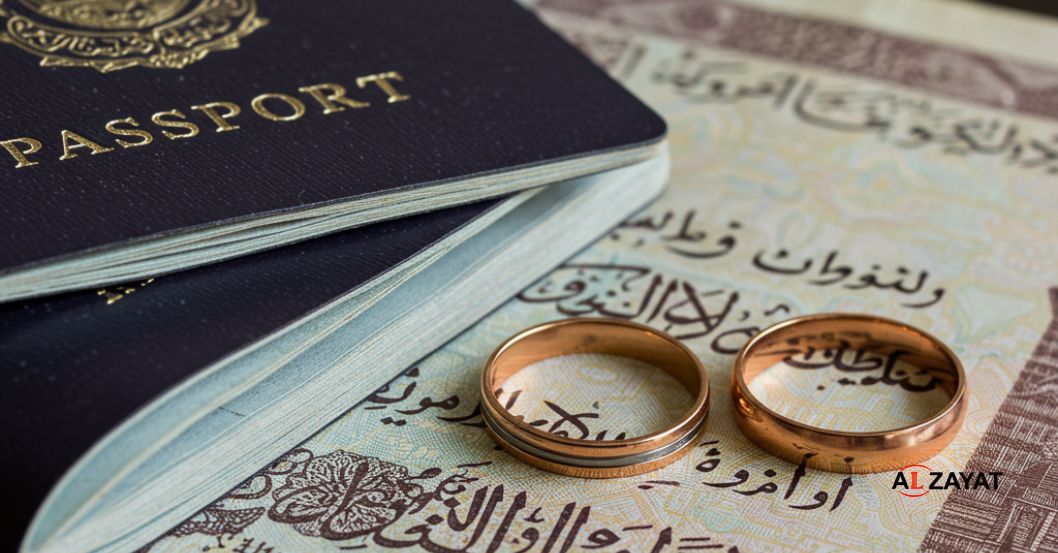A Definitive Guide to Divorce in Egypt for Foreign Wives
Divorce in Egypt for foreign wives, especially when married to Egyptian husbands, involves navigating a unique and often complex legal system. The process and outcomes can differ significantly from those in Western countries. Therefore, whether you are the foreign spouse initiating the process or are responding to a divorce filing, it is essential to understand the legal framework. You must know the impact it will have on both sides. At Alzayat, Egypt’s leading international divorce law firm, we have extensive expertise in guiding clients through these challenges.
The Legal Framework: Egyptian Law and Sharia Principles
When a marriage involves an Egyptian Muslim husband, Egyptian courts will apply local law. This law is heavily based on Islamic Sharia principles. This is true regardless of where the marriage took place or the nationality of the wife. Foreign laws are generally not applied in these cases. Consequently, understanding the core concepts of Egyptian divorce proceedings is the first step toward protecting your rights.
The Divorce Process: Differentiating Key Scenarios
The legal path to divorce in Egypt depends heavily on who initiates it. The process for a husband is vastly different from the process for a wife. This is a critical distinction for any foreign spouse to understand.
Scenario 1: When the Egyptian Husband Initiates Divorce
An Egyptian husband has the right to unilaterally divorce his wife (known as *talaq*). This process can be completed very quickly, sometimes in a single day, by declaring the divorce. However, Egyptian law includes the concept of a revocable divorce. Following a husband’s declaration, a three-month waiting period (*iddah*) begins. During this time, he has the right to revoke the divorce, and the marriage can be restored, often even without the wife’s consent. If he does not revoke it within this period, the divorce becomes final and irrevocable. This process highlights the importance of understanding the specific timeline in a divorce in Egypt for foreign wives.
Scenario 2: When the Foreign Wife Initiates Divorce
When the wife takes the initiative, the process is different and more structured. A foreign wife cannot unilaterally end the marriage. Instead, she must file a case with the Egyptian family court. She may seek a divorce for cause (such as harm or abandonment) or through a “no-fault” process known as *khul’*. In a *khul’* divorce, the wife agrees to forfeit certain financial rights, such as the deferred dowry, in exchange for the dissolution of the marriage. These international divorces require a formal legal approach and court proceedings.
Divorce for Non-Resident Couples and Mutual Consent
What if both spouses are not residents of Egypt but wish to formalize their divorce under Egyptian law? If both parties agree to the divorce, they can pursue a path of mutual consent. This often involves one party, typically the husband, making a final divorce declaration according to Sharia principles. The couple can then work together to have this declaration legally documented and certified by the relevant authorities. This ensures they receive a final, official divorce certificate that can be authenticated for use abroad. Our firm can assist with this documentation process; contact us for your divorce in Egypt.
Expert Legal Support for Your Case
Navigating a divorce in Egypt for foreign wives requires expert legal counsel to ensure your rights are protected. Our team at Alzayat provides comprehensive support on all related matters, including financial settlements, child custody, and international family law. For more detailed information on this topic, you can read more in our blog about International Divorce & Family Law: Egypt. For further reading on family law structures, academic resources like the Journal of Islamic Law and Society offer valuable insights, while the UN’s work on women’s rights provides international context.

Divorce in Egypt for foreign wives is governed by local law, which has distinct rules and procedures
Frequently Asked Questions
-
1. Does my foreign prenuptial agreement have any value in an Egyptian court?
- Generally, no. Egyptian courts do not typically recognize or enforce foreign prenuptial agreements, especially if they contradict the financial rights and obligations established under Egyptian family law and Sharia. All financial settlements will be determined according to local law.
-
2. What financial rights am I entitled to as a foreign wife upon divorce?
- A wife is typically entitled to several financial rights. These include the deferred dowry (*mo’akhar*), alimony during the waiting period (*nafaqat iddah*), and a compensation payment for the divorce itself (*mot’aa*). The amounts depend on the specifics of the case, such as the length of the marriage and the husband’s financial means.
-
3. Who gets custody of the children after a divorce?
- Under Egyptian law, the mother is typically granted physical custody of young children (usually until age 15). The father remains the legal guardian, responsible for all major decisions and financial support. However, there are crucial restrictions, as the mother cannot travel abroad with the children without the father’s consent. Navigating a divorce in Egypt for foreign wives with children requires careful legal planning.
-
4. Can the “revocable divorce” be challenged?
- The husband’s right to revoke a unilateral divorce during the *iddah* period is a core part of the law. It cannot be directly challenged. However, if a wife does not wish to resume the marriage, her option is to immediately file for her own divorce through the *khul’* process, which would then make the dissolution of the marriage final.
-
5. Do I need to be in Egypt to complete the divorce process?
- No. A foreign wife can grant a specific Power of Attorney to a licensed lawyer in Egypt. This allows the lawyer to file the case, attend court hearings, and handle all legal procedures on her behalf. This makes managing a divorce in Egypt for foreign wives possible from anywhere in the world.

